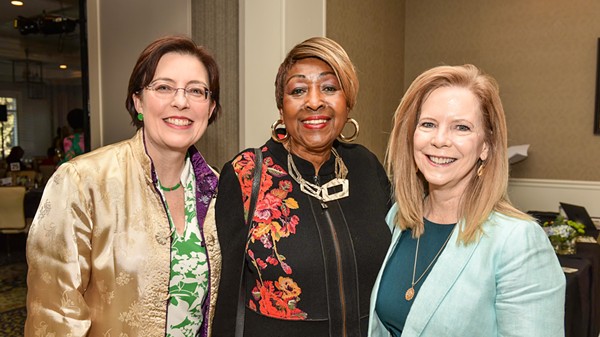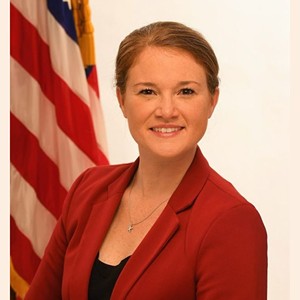FOR THOSE of you who are recent arrivals to Savannah, the name Ashleigh Moore may not have much resonance.
But her murder nearly a decade ago was one of the most disturbing crime stories seen here for quite awhile -- in a town already notorious for its outlandish but true crime stories.
In April 2003, 12-year-old Ashleigh Moore was reported missing by her mother's live-in boyfriend Bobby Buckner. It was a far-reaching move for Buckner, since due to previous sex offenses he wasn't allowed to be around females under 16 without another adult present.
He was arrested for violating parole.
Weeks later Ashleigh still hadn't been found. The case received national attention when it was featured on a highly-rated forerunner of today's reality TV trend, "America's Most Wanted."
On May 14, 2003, Ashleigh's body was finally discovered -- apparently sexually violated -- downtown by the river.
Questions centered not only on Buckner himself, a convicted sex offender, but on Ashleigh's mother Michelle, who claimed to know nothing of her boyfriend's past.
The unresolved murder brought to the forefront many of the old Savannah issues we still deal with today: fatherless homes, dysfunctional families, recidivist criminals on the street, the plight of the most defenseless among us.
We didn't see a lot of photos of Ashleigh, but the one the media used the most was particularly heartbreaking in its depiction of a bespectacled young girl with a polite, open, but slightly shy expression.
Buckner was charged with the murder and the associated sexual offense. What unfolded next was like something out of Dickens or Kafka: a tale of blunders, bureaucracy, legal limbo and a seemingly endless trial which has made a mockery of the local District Attorney's office.
For many, the news on May 30 that the case against Buckner was dismissed by Judge Penny Haas Freesemann in a blistering 36-page ruling came as a shock. But the tea leaves were clear some time ago.
The Chatham County District Attorney's Office, currently headed by DA Larry Chisolm, is tasked with prosecuting defendants in the name of the victim(s). In this case both the victim and the defendant are obvious: Moore is the victim, Buckner the defendant.
But what's often lost is the fact that the DA, as "the state," not only represents victims like Moore, it brings actions against accused lawbreakers on our behalf as well. That's one reason it's an elected office.
In this case not only were Moore, her family, and you and I denied justice by the premature end to Buckner's trial, Buckner's own Sixth Amendment rights were violated by his bizarrely long wait for trial (Judge Freesemann ruled that a total of nearly 40 months of the wait was the DA's fault) and for eventual indictment (Buckner was actually indicted three times, waiting five years on one of them).
In other words: No one was served well in this case, neither plaintiff nor defendant nor the community at large. Epic fail.
"Consistently throughout the judge's order, she cites neglect on the part of the state," says Meg Daly Heap, who once worked in the Chatham County DA's office and is now running against Chisolm for the DA position in this November's election.
"It wasn't just one incident," says Heap.
Recorded interviews with key witnesses went missing. Pages of documentation were gone. Physical evidence was mishandled. Copies of documents were given to the judge but not to the defense.
At one point late last year, Judge Freesemann took the rare step of issuing an "Order on Disclosure on Discovery."
"That's almost unprecedented," says Heap. "The court repeatedly had to intervene and preside over the exchange of discovery."
Also at issue is the blithe way in which the state approached capital punishment.
The DA's office had already delayed, or "continued," the case many times with little explanation when in April 2011- - the day Buckner's trial was set to begin -- it abruptly announced it would seek the death penalty.
Presiding Judge Perry Brannen didn't see that coming. He stepped down and Judge Freesemann came in as the largely separate and much more complex capital punishment process was triggered.
"Upon the announcement of the State's intent to seek the death penalty, however, the course of Defendant's case deviated considerably from that of other violent felony cases," wrote Judge Freesemann in a classic bit of understatement.
A scant four months later, the DA's office then announced it was dropping the death penalty bid. Incredibly, their main stated reason was that because of staff changes they hadn't been able to fully review the evidence -- eight years after the murder.
At one point an assistant DA meekly said to the judge, "I honestly do not know whether the document he is describing is in the volume of documents that we have."
Judge Freesemann mused that the death penalty was a bluff to force a plea bargain, but "it appears that when this attempt failed the State was unwilling, or unprepared, to deal with the necessarily heightened level of detail-oriented work that is required in any case in which the State elects to seek the death penalty."
Simply put, in the Moore case our DA's office displayed either a poor command of the facts or a cavalier disregard for them, "and neither is acceptable," says Heap.
The fact that the case was inherited from the prior DA is hardly a good excuse.
"Back in the day a young prosecutor would never go into the courtroom and tell the judge, ‘well, my secretary didn't do this or do that,'" says Heap.
"The buck always stops with the DA."
So after all this time, justice for Ashleigh Moore won't be served. Buckner remains in jail on other charges, but only until 2016.
But this November, Chatham County voters will get their chance to be heard.



























